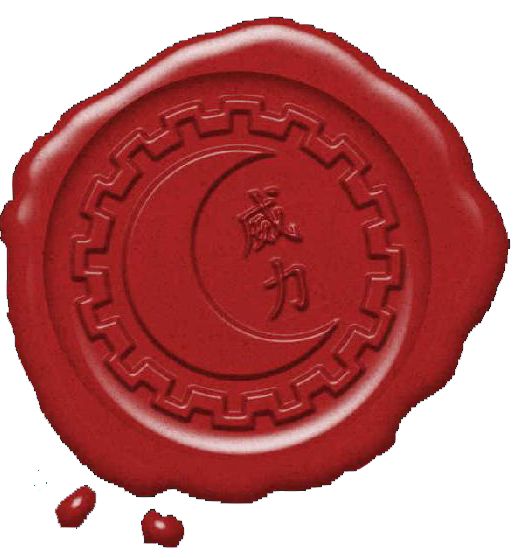Will Wight
Morality discussions are exactly the sort of thing I probably shouldn't chime in on. When I share my thoughts on this topic, that kills discussion between readers.
But since you tagged me in, I'm going all-out! Let's do this thing right!
There is no true morality or justice in Cradle, only might makes right.
I don't understand this. The "might makes right" mentality comes from a world in which one hundred people cannot necessarily overpower one person, so their cultures developed differently than ours. In the same way, ours developed because there is no way ten people could possibly fail to overpower one, so "power" is measured in one's ability to influence others to your side.
None of this is a reflection of "true" morality or justice. These are just power dynamics. It's not mutually exclusive with the same range of moral beliefs we have in the real world, it's just a practical reality. The series is primarily dealing with power dynamics, not the moral ramifications of such, because having Lindon extensively brood over whether his accumulation of power is morally justified in an inherently stratified society doesn't make for a compelling story.
Also, what are "true morality" and "true justice"?
So I fully expect Lindon to slaughter the Heavens Glory school.
Why would you expect that? He hasn't slaughtered anyone thus far. He's been in life-or-death battles and failed to wrestle with the morality of killing people who were trying to kill him, but that's a big leap to exterminating a school in revenge. He hasn't done that thus far, so I'm confused about why you would expect him to start doing so in the future.
There is no theme of moral development.
It is my one complaint in the series, there is no moral development.
I'm going to meet you halfway here and say that I think I agree with your intent, at least to some degree. Lindon needs to care about more than just his immediate problems in order to have a nuanced connection to the world and be fleshed out as a character, so I intend to explore that more as his ability to influence other people grows.
However, I don't think a theme of moral development is a necessity in every story.
Lindon withholding protection of SV out of revenge regardless of the innocents saved would be very consistent with the world.
Sure, but not consistent with Lindon's behavior or personality.
Everyone is a monster except the Judges who are forced to make horrible decisions to save some worlds.
I find it interesting that you singled this out, because the Judges are the only people I explicitly showed in an ongoing moral dilemma. The other characters face similar decisions with lower stakes, but because it's not a major theme of the series, I don't focus on it or spell it out.
And there doesn’t seem to be a moral arc as to why Judges would stop caring about clawing for power and suddenly flip a switch and be protective guardians of the universe.
I'm not sure why such a moral arc would have been demonstrated in the story thus far, nor why those two things would be mutually exclusive. We have a small amount of insight into Makiel, Suriel, and Ozriel--three of the four Judges introduced into the story thus far--and all three of them very clearly use their power with a strong set of beliefs. Suriel is trying to minimize suffering in the multiverse, Makiel seeks stability, security, and order, and Ozriel is (or was) looking for a way out of his distasteful role in the cosmos because he doesn't want to be mass-murdering people.
So we know that they do have moral standards and reasons for gaining power besides the power itself. Why would you think that they didn't before?
Besides Mercy, we haven’t seen anyone who cares about anything beyond their own problems (Lindon included).
I think you have a specific requirement or expectation in your mind for what constitutes the demonstration of a moral standard, because we definitely have seen those things from virtually every character. It depends entirely on your definition of "their own problems" and what it looks like to care about them.
Jai Long obviously cares about his sister, and Jai Chen cared about Sandviper Kral and grieves when he is gone. Lindon cares about his family and friends. Yerin cares about hers. Orthos cares about Lindon. Eithan's priorities are mysterious, but he demonstrates that he values the Arelius family, Cassias, and Cassias' opinion of him. Kiro from Underlord takes the responsibilities of his role seriously on behalf of his kingdom, as does Naru Huan, the Blackflame Emperor, who regularly prioritizes the development of his Empire over his own personal advancement. Charity cares about her family. Sophara cares about hers. At the very beginning of the series, we see each individual member of the Shi family trying to balance their own personal desire for advancement with fairness and equality in the form of the debate around the orus fruit.
You could include caring about one's own family in the "their own problems" category, but does trying to do what's best for your family make you a monster? You said "Everyone's a monster," but is someone who is primarily motivated by the good of those to whom they are responsible a monster? How many people are motivated by pure altruism? How relatable do you, as a reader, find a character who is driven by nothing more than abstract morality?
TL;DR - Lindon will be running up against more moral dilemmas in the future, now that he has the power to really influence the lives of more people, but I don't know that I'll ever be exploring the moral ramifications of the setting to your satisfaction. I just don't see it as an essential component of the story.




